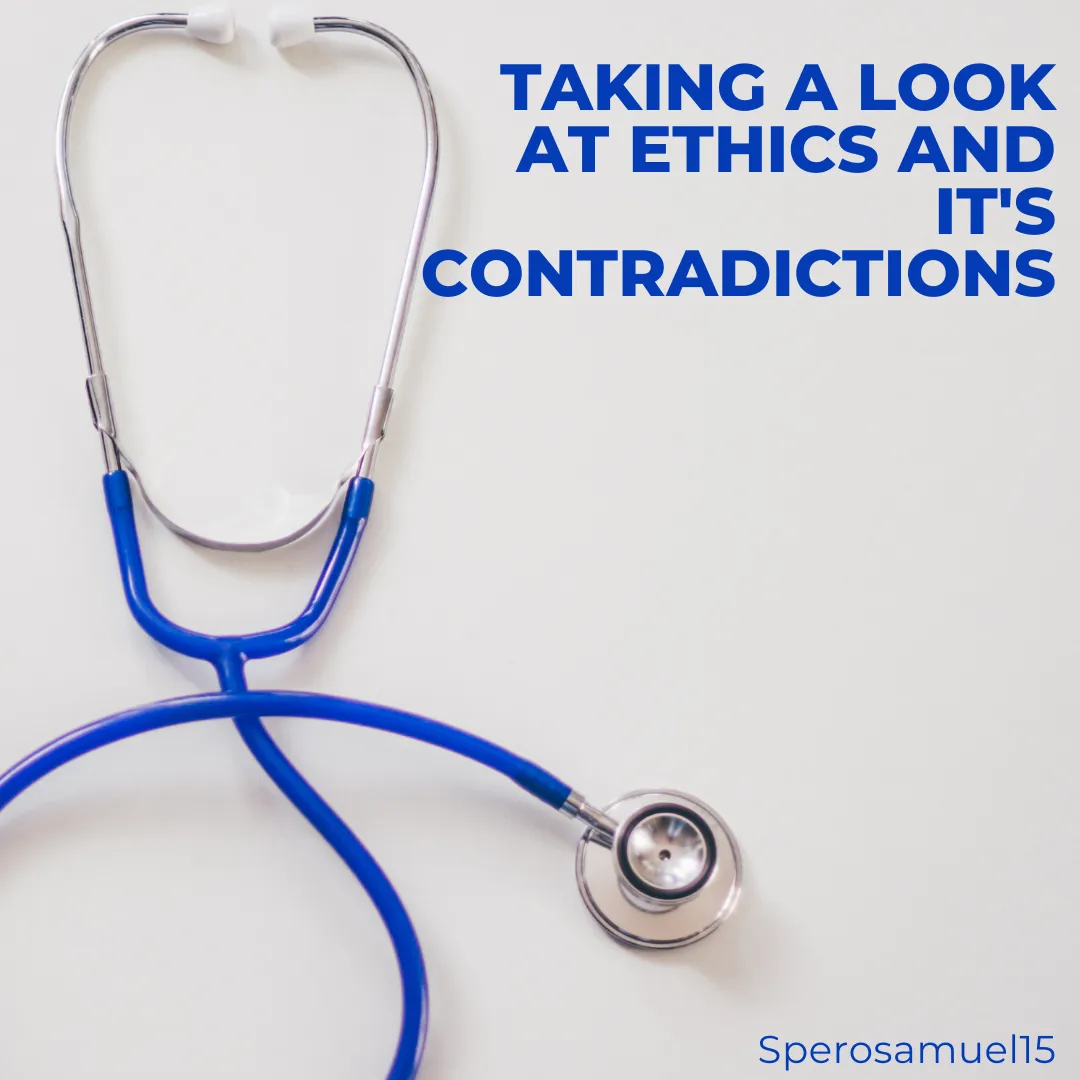Ethics is said to be derived from greek etymology, "ethos" which relates to one's character disposition.
Ethics represents set of principles that help us answer the question, "what should be done in a given situation all things considered".
Ethics is generally accepted voluntarily as a code of conduct and behaviour by members of a profession.
Medical morality is the study of moral values and judgement as applied to medical practice.
Ethics forms the basis for taking informed consent.
Informed consent in medicine entails you taking permission, explaining in details what you want to do to the patient and also detailing him or her on the consequences she's expected to see after the procedure.. it is so vital that nothing could be done until the patient has approved of the care to be given.
Once the patient refuses, even if the procedure would have saved him or her, you can't save the patient because she has refused.
Just few days ago, we encountered maternal mortality, not because the doctors were incapable but then, because the woman was a member of Jehovah's witness and then they don't believe in blood transfusion whereas this woman was massively bleeding and needed blood transfusion, even at death bed, she refused treatment and nothing could be done.. it was actually a gory site and a painful one indeed.
- Beneficence
This is the ethical principle that mandates all medical practitioners to give nothing but the best to the best of their abilities to the benefit of their patients.
This principle also entails quick referral for cases that you feel you can't handle.
- Non maleficience:
This is the principle that mandates medical practitioners not to do any harm in any situation no matter what it may be.
As a medic, your whole energy should be focused only on helping your patient regain her full recovery and that's to say that even if the patient has done something wrong to you in the past, you won't hold it against him or her but rather focus on his or her recovery.
- Autonomy
Just like in the scenario I painted above about the woman refusing blood transfusion, this is the ethical principle that made it possible for her.
This is the ethical principle that states that the patients decision overrides your decision... It's often said that autonomy overrides beneficence!
However, there are some contradicting aspects of this ethics or rather there are some of these ethical questions I have that are yet to be answered.
Let's take for instance,
Married couples are enjoying their marriage and the one of them cheats.
Unfortunately he or she contacted sexually transmitted disease as deadly as Human Immune Virus.
She starts getting the symptoms and comes to check her status which turns out to be positive...
Now Ethically speaking, you're for no reason allowed to reveal the truth to her partner!
Now here is the question....
If you don't tell the partner about the current state of health of his or her partner, he or she is bound to contact that HIV because of ignorance...
This becomes a dilemma as telling the husband will be a violation of the ethical principle of privacy and confidentiality whereas telling him will favour the moral value of preventing and stopping disease from spreading.
So what exactly are you expected to do?
I remember asking my lecturer this question when this topic was taught and he said never for no reason to reveal a result to the partner without consent but to be honest, I am not comfortable with this response.. i really don't even know what to do if I ever find myself in this shoe.

